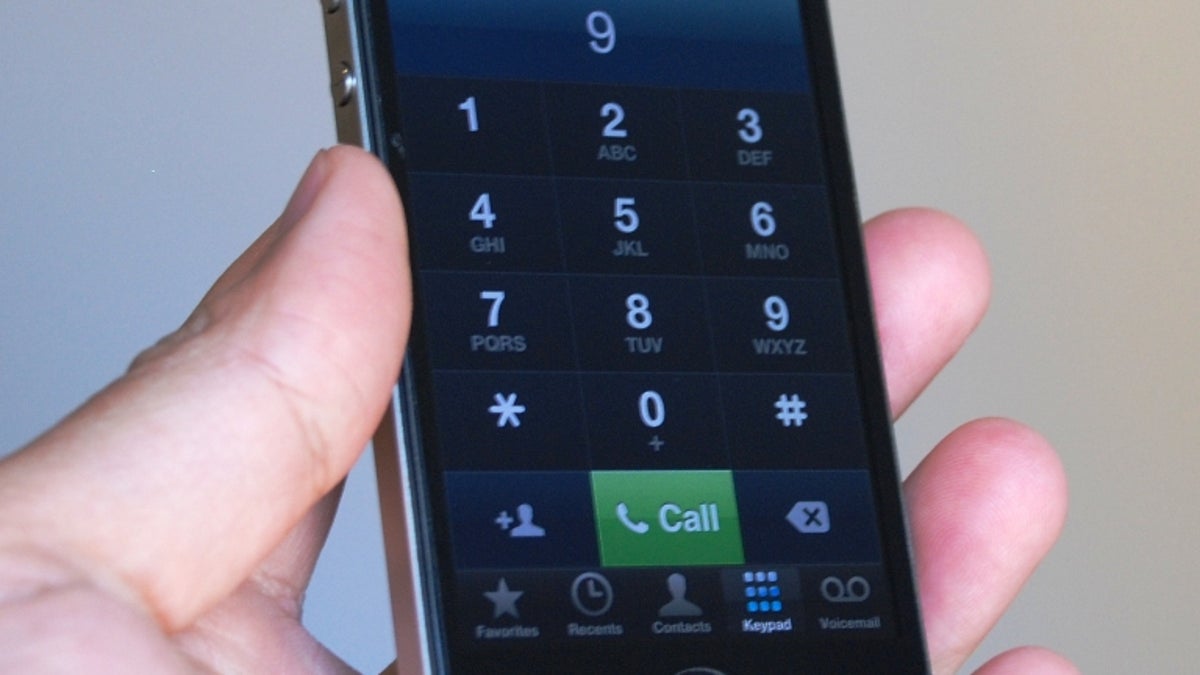Report: Cell phone use could reduce sperm count
A recent report in a medical journal suggests that the radio-frequency energy emitted by cell phones may adversely affect sperm health in humans and animals.

Gentlemen, your cell phone could be your closest enemy. According to an Italian report published in the Journal of Andrology (PDF), researchers in the United States and around the world have found that the radio-frequency electromagnetic radiation (RF-EMR) emitted by cell phones may decrease sperm count and damage sperm quality.
Though still inconclusive, the research focuses on several studies on both human and animal sperm. For humans, some of the studies exposed sperm from healthy nonsmoker volunteers to RF-EMR in a laboratory setting, while others compared the sperm health of subjects who regularly carried their cell phone in their front pants pocket with those who did not.
On the whole, sperm that were exposed to RF-EMR showed decreased sperm concentration; motility (the ability of a sperm to move toward an egg); morphology (the size and shape of sperm); and viability. Similarly, subjects who carried their phone in their pockets had a lower sperm concentration.
In one animal study, researchers put rats in special Plexiglas cages with cell phones just 0.2 inch underneath the cage bottom. After the rats were exposed to cell phone emissions for 6 hours per day for more than four months, the researchers found a 25 percent drop in the rats' percentage of live sperm. Their sperm also had the tendency to stick together, reducing the chance of fertilizing an egg.
Dr. Joel Moskowitz, the director of the Center for Family and Community Health in the School of Public Health at the University of California at Berkeley, told CNET that this is a complex matter that needs to be further researched.
For example, it's currently unclear what type of cell phones or phone service, such as GSM or CDMA, would cause a more adverse impact. "If more research is done, and we have more solid results, consumers could be presented with a choice," he said. "There might be phones or cell services that have less impact on our reproductive organs than others."
Related stories
• Cell phones and the radiation risk (roundup)
• Cell phone radiation: Harmless or health risk?
• The trouble with the U.S. cell phone radiation standard
• Cell phone radiation: A self-defense guide (FAQ)
• WHO: Cell phones may cause cancer
• Complete ratings: Cell phone radiation levels
Though it's unclear how exactly RF-EMR might affect sperm, one theory is that when cell phones are kept long term in the front pocket, they generate heat that damages sperm in the scrotum (generally, sperm need to remain about 4 degrees lower than normal body temperature). Others suggest, however, that the phone's RF-EMR radiation penetrates tissue and interferes with the body's own electromagnetic frequency at a cellular level, resulting in abnormal sperm.
"Children, adolescents, young adults, and especially pregnant women should take precaution and avoid keeping the cell phone close to their reproductive organs, in addition to their head," Moskowitz said. "These are the parts of our body that are highly sensitive to cell phone radiation. This is a wake-up call for those who tend to leave cell phones in their front pocket."
John Walls, the vice president for public affairs at the CTIA, the wireless industry's lobbying arm, did not comment on the sperm studies directly. Yet, in an e-mail to CNET, he cautioned that organizations like the American Cancer Society, the National Cancer Institute, the World Health Organization, and the U.S. Food and Drug Administration have all concurred that wireless devices are not a public health risk.
"Since we are not a scientific organization, with respect to the matter of health effects associated with wireless base stations and the use of wireless devices, CTIA and the wireless industry have always been guided by science, and the views of impartial health organizations," he wrote. "The peer-reviewed scientific evidence has overwhelmingly indicated that wireless devices, within the limits established by the FCC, do not pose a public health risk or cause any adverse health effects."
Updated August 18 at 10:20 a.m. PT with CTIA's statement and a correction. This story originally reported that Dr. Joel Moskowitz helped publish the study. In fact, he just provided CNET with the information.

